A question occurred to me while watching a documentary about Joy Division; is there any better ending to a song than Ian Curtis bellowing FEELING FEELING FEELING FEELING FEELING FEELING FEEEEEELING! as the music clatters to a halt at the end of “Disorder”? Lyrically, despite its explosiveness, it isn’t cathartic, but in a musical way it is – for the listener at least – because until that point, the tempo has been too fast and the lyrics too complex for Curtis’s voice to do whatever its deep, melancholy equivalent of ‘taking flight’ is.
There’s an underappreciated art to ending songs and it’s not something that even the greatest bands do infallibly or that all great songs feature. Not every song needs to end with a crescendo or flourish, and very few songs benefit from just grinding to a halt or being cut off mid-flow, but the sense of completeness when a song (especially a relatively short song) ends perfectly is one of the things that makes you want to hear it again.
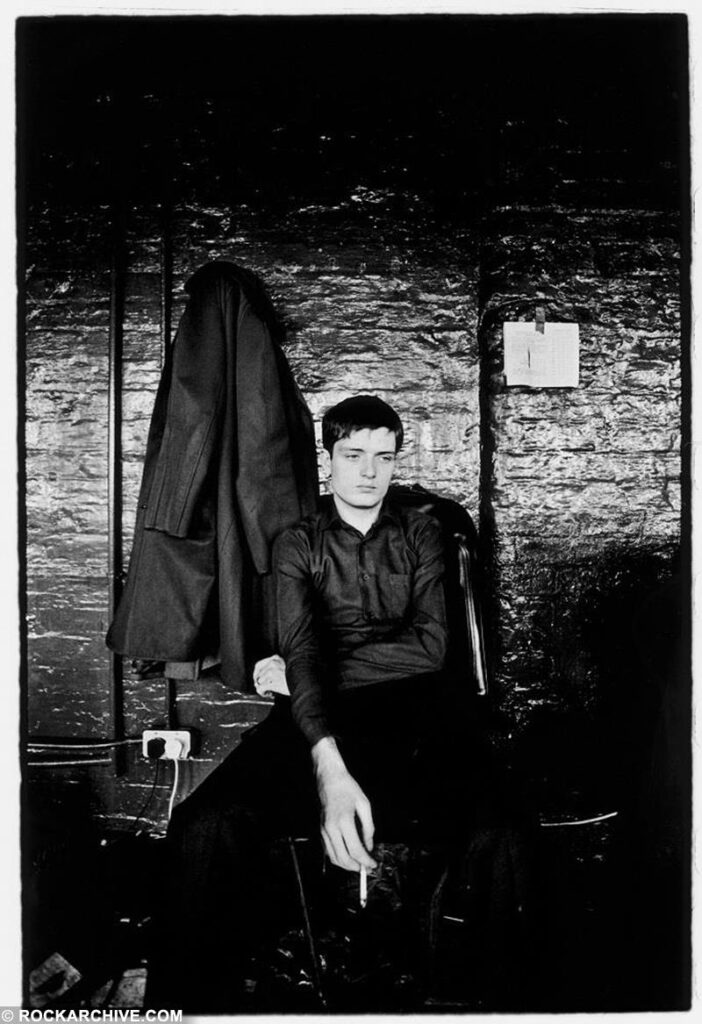
“Decades,” the final song on Closer, the final Joy Division album, is one of relatively few songs (given their vast number) where fading out at the end doesn’t seem like a cop out. There’s nothing inherently wrong with fading out a song, but too often it just feels like an easy option taken in order to dodge the question of how to end a song properly. Which is fine, except in live performances, where it’s difficult to satisfactorily replicate a fade-out. Partly that’s because of the practicality of it – does the band (as I have witnessed) all try to play more quietly? Do they just (as I have also witnessed) get the sound person to turn down the volume, which works unless you’re close to the front, which, in that situation is sub-optimal, since hearing the unamplified sounds from the stage (drums clattering, guitars plinking etc) is kind of a mood-killer? And if so, when do they all stop? There’s also the awkwardness of the audience reaction; the crowd might start cheering/jeering before the song is actually finished, or they might not start until someone in the band indicates that that the song is definitely over, which is also not ideal. Basically, it feels artificial – but obviously it has the appeal of being simple: haven’t thought of a proper ending for your song? Just keep playing and fade it out afterwards. But Closer, of all albums, needed to fade into silence and it does.
Another musical ending this week – a seriously clunky segue this but bear with me – was the death of Ozzy Osbourne, a week after what was explicitly intended to be his final performance, a different kind of ending and a very unusual one in the music world where ‘farewell’ tours can become an annual occurrence and no split is too acrimonious to be healed by the prospect of bigger and bigger sums of money.
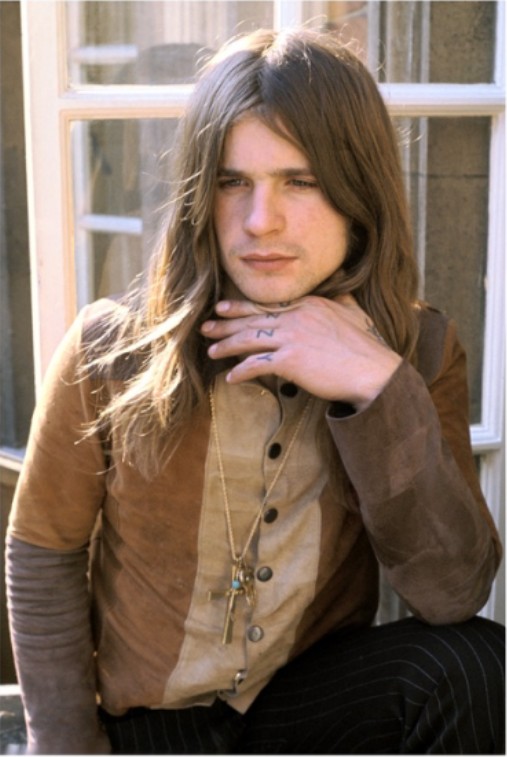
On paper, any kinship between Ozzy and Joy Division seems unlikely to say the least, but the ears say otherwise. Regardless of the punk roots of Joy Division, the only real precursor to a song like “New Dawn Fades” from their 1979 debut album Unknown Pleasures is Black Sabbath. Not only because of the oppressively doomladen atmosphere, though that’s important; Bernard Sumner’s opening guitar melody is remarkably like Tony Iommi’s melodic solo from “War Pigs” – a classic song, incidentally, which has one of the worst endings ever foisted onto any great song. Presumably, Black Sabbath had no idea how to end it, kept jamming and then did something worse than a fade out; speeding it up until it ends either with a bang or whimper, but with a comical squeak.* Oh well. But anyway, there are many moments, especially on Unknown Pleasures, where Joy Division sound like a cross between Black Sabbath and the Doors, although I’m sure neither of those things were in the minds of Peter Hook, Bernard Sumner, Stephen Morris and Ian Curtis, any more than they were in the consciousness of the music journalists who lauded the band in ’79, who mostly tended to see punk as year zero, the new beginning from which the influence of anything pretentious or overblown had been erased.
* irrelevant side note: when I first bought the Pixies album Surfer Rosa at high school, the now-classic “Where is My Mind?” ended in an undignified, “War Pigs”-like speeding up. I later replaced the tape with another, which did the same thing and it was only when I replaced my tape with a CD years later that I realised that isn’t actually – thankfully – how the song is supposed to end.

That basic idea that 1976 was the beginning of music was one I accepted without much thought as a teenage indie fan in the early 90s, when Joy Division – by then defunct for a decade – became one of my favourite bands. With the honourable, weekly music paper-approved exception of the Velvet Underground, I was dubious about anything ‘old’ or anything that I considered overtly commercial. Again without giving it much consideration I just assumed that mentality came from my reading of Melody Maker and the NME. I definitely accepted their pre-Britpop genealogy of cool rock music that essentially began with the Velvet Underground and then continued via punk and post-punk into 80s indie guitar music, most of which existed firmly outside of the mainstream of the UK top 40. But reflecting on Ozzy on the news of his death, it seems my snobbery has older roots.

I don’t remember when I first heard Ozzy Osbourne’s name, but I do remember when I first heard his music. It was 1988 and I was about a year away from growing out of metal, but still immersed in it for the time being. Within metal itself I had fairly wide taste and my favourite bands included many of the biggest bands of the era; Iron Maiden, Metallica, Guns ‘n’ Roses, Helloween, Megadeth, Suicidal Tendencies, Queensrÿche, Slayer, Anthrax, plus many more. At that point I mostly discovered music via magazines (especially Metal Forces) and my friends. In addition to my modest collection of records and tapes I had many more cassettes that had been made for me by friends and I spent a good bit of my spare time making tapes for them; it was fun. And so; Ozzy. A friend had taped a couple of albums for me on a C90 cassette (the odd pairing, it seems now, of Mötley Crüe’s Girls, Girls Girls and Slayer’s Reign in Blood) and filled up the rest of the tape with random metal songs, among them “Foaming at the Mouth” by Rigor Mortis, “The Brave” by Metal Church, “Screamin’ in the Night” by Krokus and Ozzy’s latest single, “Miracle Man”. I pretty much hated it. I thought Ozzy’s voice was unbearably nasal and awful and the production really harsh and tinny (that was probably just the tape though).

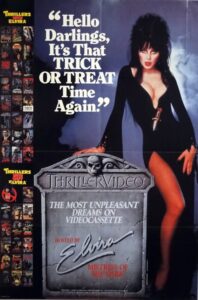
By then, I knew who Ozzy was, and was aware of his bat-biting notoriety, though that definitely seemed to be a bigger deal in the USA than it was in the UK (or at least in my corner of rural Scotland). At some point just a little later, Cassandra Peterson, or more accurately Elvira, Mistress of the Dark presented a short series of metal-related shows for the BBC. One episode included Penelope Spheeris’ fantastic documentary The Decline of Western Civilization Part II: The Metal Years, which includes one of my favourite Ozzy interviews, but also concert footage of Ozzy. The film captures him during his ‘mad housewife’ period when his image seemed to be based on Jackie Collins’s style at the time. I love that era of Ozzy now, but at the time I thought it was laughably awful.
It must have been around the same time that I became aware of Ozzy’s history with Black Sabbath, who I only knew in their then-current incarnation with Tony Martin, which again I now love but at the time thought irremediably middle-aged and boring. The fact that Ozzy’s Black Sabbath was from the 70s meant that I pretty much dismissed them without needing to hear them. When Elvira showed a classic early Led Zeppelin concert in black and white I also found that tiresomely old and dull, especially in comparison with the Napalm Death concert she presented. It’s hard to relate to now, but in the 80s, for me – and I think for most people I knew of my age – the 70s was cheesy, embarrassing and possibly funny, but with no redeeming features. Actually, that’s how the 80s were for a good part of the 90s too; changed days.
Again, like most of the metal fans I knew, I loved metal, but I mostly didn’t like rock. Metal meant precision, virtuosity, heaviness and speed. Rock (to this kind of metal fan) was simplistic, old-fashioned and (worse) commercial. Oddly, I never thought to include the very glam-oriented hair metal bands I liked in the rock camp; which I can now see is where they really belonged. I loved bands like Poison, Faster Pussycat and Pretty Boy Floyd, despite the fact that their very obvious ambition was to be famous and that they wrote schmaltzy ballads. I made the same exception, mysteriously, for Guns ‘n’ Roses, who I loved. But I thought of them as metal, not rock.

It was a distinction that my parents’ generation seemed simply not to understand. To them and their friends if you liked Metallica wasn’t that basically the same as liking Meat Loaf? But I was of the generation for whom, from the earliest days of primary school, the idea of being seen in flared trousers was the stuff of nightmares. That horror of the era we were born in was hard to let go of, which is no doubt partly why the legacy of punk was easy to embrace later. In 1987-8, when I first heard them, Metallica instantly became one of my favourite bands and soon …And Justice For All became one of my favourite albums. A crucial part of that was that the band, as I first knew them, looked cool to me. When, probably later that year, I first heard Ride the Lightning and Master of Puppets I loved those too, but the sight of the great Cliff Burton (RIP) in his denim bellbottoms with his middle-parted hair and little moustache, looking like he should have been in Status Quo circa 1974 was extremely cringe-inducing; that was not cool. Not in Scotland in 1988 anyway.
It took a while for that attitude to change. One of the gateway albums that led young teen me away from heavy metal and towards the indie/alternative world was Faith No More’s The Real Thing, which included a cover of “War Pigs.” And at that time the song still felt old fashioned and less good than the rest of the album to me. It was only after a few years of hardcore indie snobbery that my attitude really changed. As my adolescence got to the more painfully introspective stage I stopped listening to metal, having been introduced to things like the Pixies and Ride and simultaneously discovering slightly older music like The Smiths, The Cure, Joy Division and the Jesus & Mary Chain. The part of me that still liked loud and heavy guitars didn’t care so much about precision anymore and so alongside the typical UK indie stuff, I also liked grunge for a while, mainly Mudhoney, Tad and Nirvana, but especially grunge-adjacent weirdness like the Butthole Surfers and Sonic Youth. That would seem to provide an obvious bridge to the hard rock of the 70s, since virtually all grunge-oriented bands referenced Sabbath and Kiss, but no.
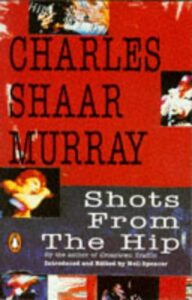
In fact, what happened was that in the Britpop era, I loved 70s-influenced bands like Pulp and Suede (I was never a fan of Blur or Oasis) and as Britpop quickly became dull I started to get into the older music that Britpop referenced. At first it was mostly Bowie and Lou Reed, but after reading Shots From the Hip (referenced a million times on this website) by Charles Shaar Murray, I broadened my horizons to include 70s glam in general (Roxy Music, Eno, Jobriath, Raw Power-era Stooges, but also the bubblegum stuff) and other things that Murray mentioned, whether positively or disparagingly. The latter seems odd but I’ve discovered lots of things I like that way. And suddenly, Ozzy was inescapable (though less so than he is this week).
I bought the Charles Shaar Murray book because Bowie was featured heavily in it; but he also wrote about Black Sabbath. I also bought a book by the great photographer Mick Rock, because he had photographed Bowie and Lou Reed and Iggy and John Cale; but who should be in there but Ozzy, looking uncharacteristically thoughtful. I bought old 70s music annuals from the glam and tail end of glam era; things like Fab 208 – because they had Bowie and Mott the Hoople and Pilot and whatnot in them, but inside there was also mention of Black Sabbath. I remember a paragraph about their then-forthcoming compilation We Sold Our Souls for Rock ‘n’ Roll being especially intriguing.

Anyway, one thing led to another and I spent a large chunk of the late 90s and early 2000s immersing myself in the music of the 1970s. At first it was primarily glam, but then all kinds of rock, pop, soul, funk etc. At some point it started including bands that I’d long been aware of and never liked; like Led Zeppelin, Kiss – and Black Sabbath. The first Black Sabbath album I owned was Sabotage, bought for 50 pence in a charity shop. The texture of the sleeve was, interestingly, the same texture as my LP of Joy Division’s Unknown Pleasures, but the imagery was a little less classy, thanks to Bill Ward’s gingham underpants being visible through his red tights; oh well. Ozzy sounded pretty much as I remembered from “Miracle Man,” but primed by Charles Shaar Murray’s description of ‘Ozzy [caterwauling] about something or other in a locked basement’ and with a more sympathetic production and – crucially – the far more bare and elemental sound of Black Sabbath that had been so unappealing just a few years earlier, he sounded right. And then, when I heard the earliest Black Sabbath albums, Black Sabbath and Paranoid, both from 1970, one of the things they reminded me of, most unexpectedly, was Joy Division.
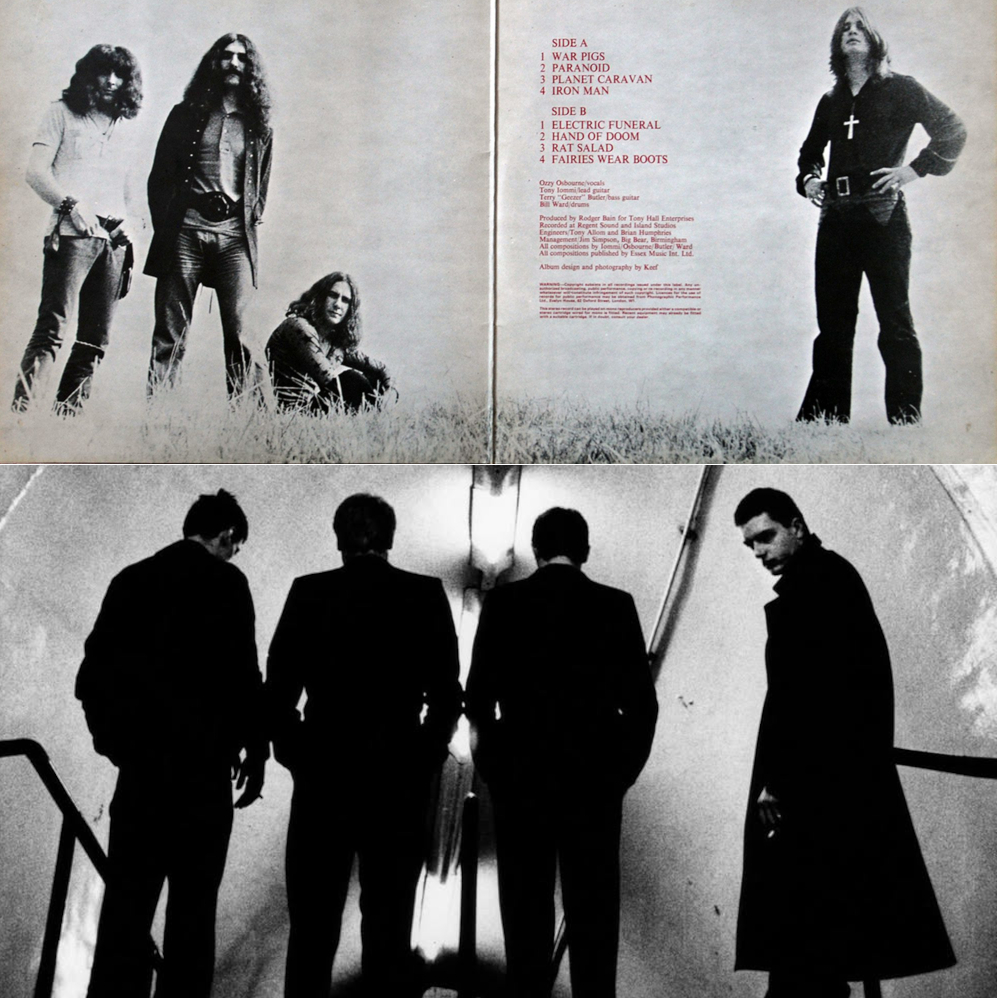
Yes, the whole aura is different. Sabbath were surly and aggressive where Joy Division were solemn and withdrawn; but there’s something about the simplicity of the sound. Geezer and Hooky’s basses took up as much space as Tony and Bernard’s guitars. Bill Ward, like Stephen Morris, was a drummer who brought a strong dance/funk element into the band’s rock music without any sense of incongruity. Ozzy and Ian Curtis are worlds apart as vocalists, but both have a despairing intensity that makes them stand out, even within their respective genres.
Both bands were from the grim, grey, hopeless industrial 1970s north of England, but whereas Joy Division were definitively a product of Manchester, with all the gritty coolness that conferred upon them, Sabbath were solidly of Birmingham, with all of the perceived oafishness and lack of credibility that entailed in the music press at least. Both singers were self-destructive too, but the same year that Ian Curtis tragically ended his life, Ozzy was reflecting on his self-destructive behaviour in “Suicide Solution”* and starting his life anew, launching a solo career which, against all expectations, made him an even bigger star and ultimately the icon who is being mourned today, far more widely than I’m sure he would ever have imagined. It was a good ending.
*Ozzy was always a far more thoughtful lyricist than he’s given credit for; I can’t think of any other artist from the aggressively cocky 80s hair metal scene who would have written the glumly confessional anthem “Secret Loser” from Ozzy’s 1986 album The Ultimate Sin

Because I’m a nerd, and not just a music nerd, writing this piece made me think of Michael Moorcock’s elegiac sci-fi/fantasy novel, The End of All Songs. It was published in 1976, the year that Ian Curtis, Peter Hook and Bernard Sumner met at a Sex Pistols concert in the Lesser Free Trade Hall in Manchester, the year that Black Sabbath released their seventh album, Technical Ecstasy – generally agreed to be the one where the cracks started to show in the Ozzy-led lineup, but one of my favourites. Moorcock took the title of his novel from a poem by the Victorian writer Ernest Dowson, which feels appropriate to end with, since fading out is kind of a hassle, text-wise.
With pale, indifferent eyes, we sit and wait
For the drop’d curtain and the closing gate:
This is the end of all the songs man sings.
Ernest Dowson, Dregs (1899)




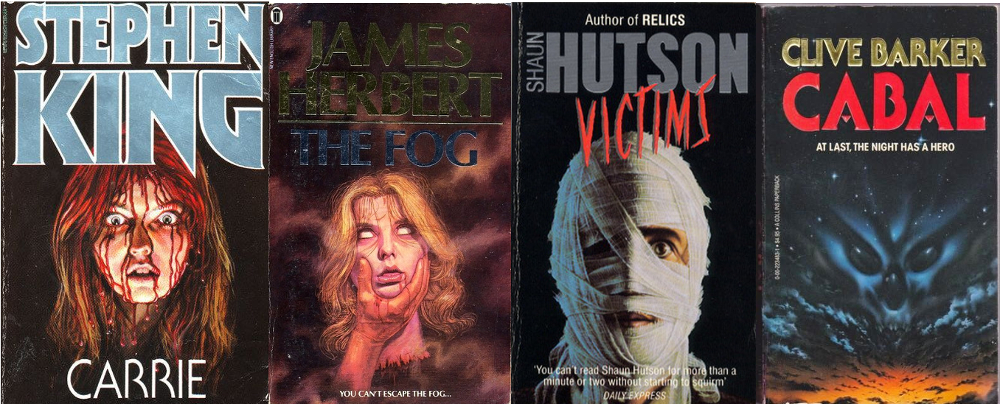
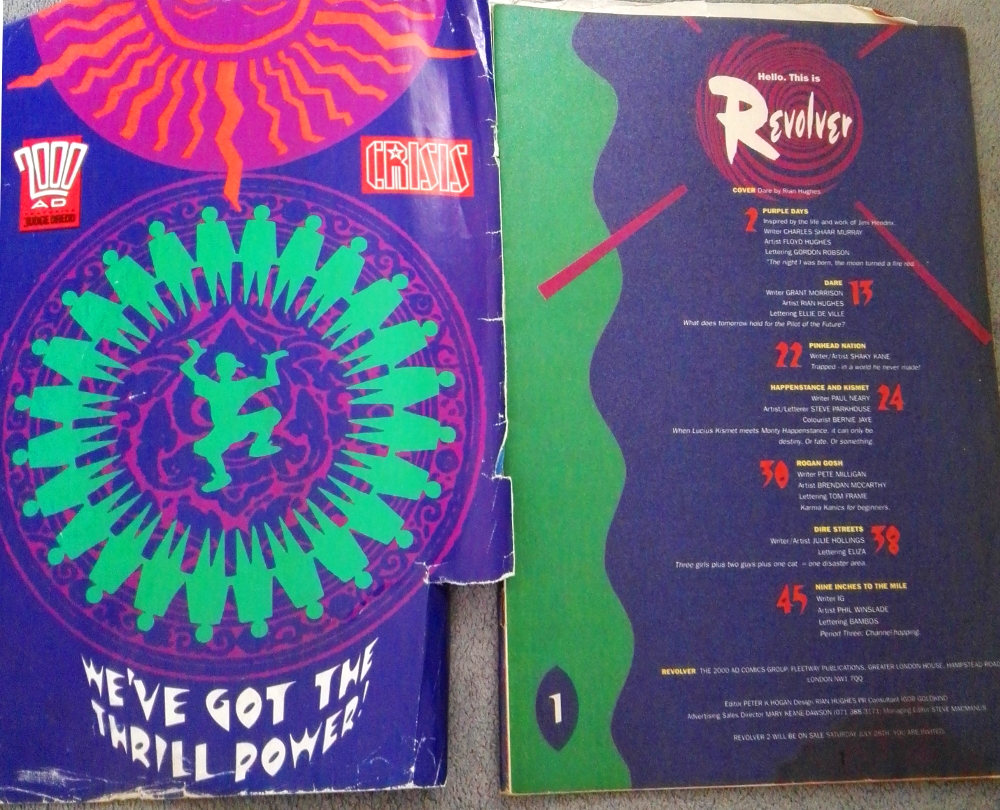

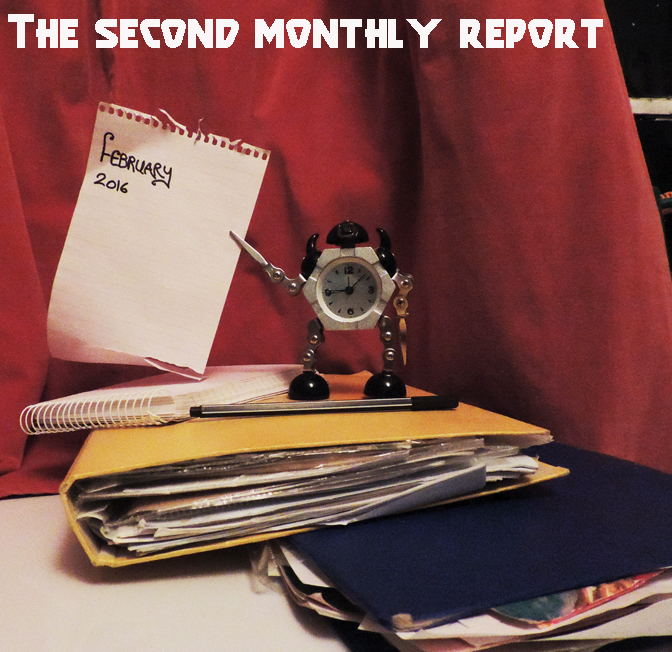
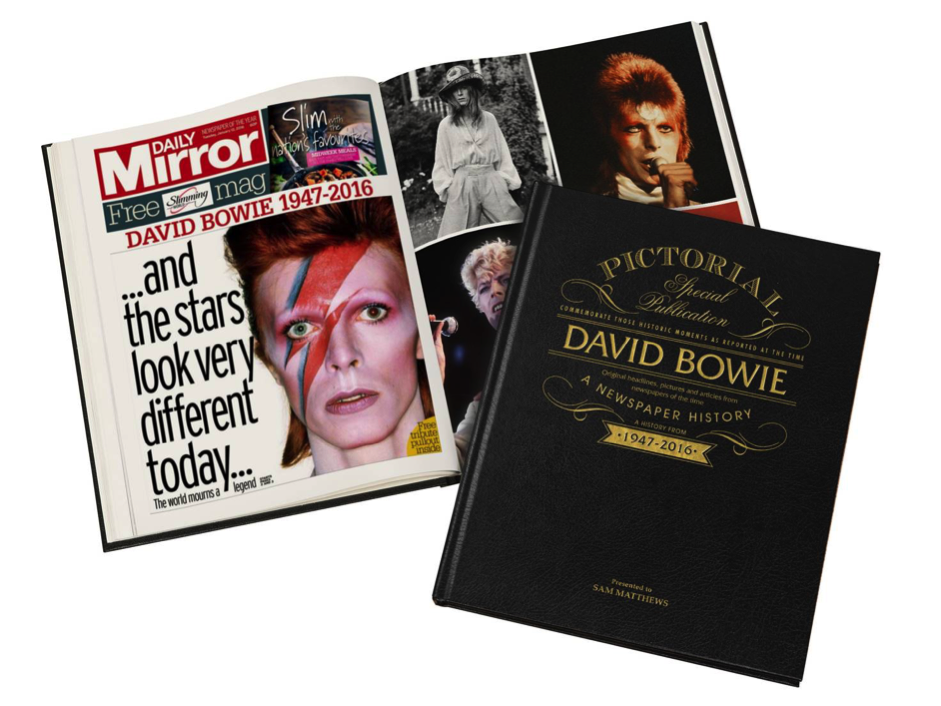
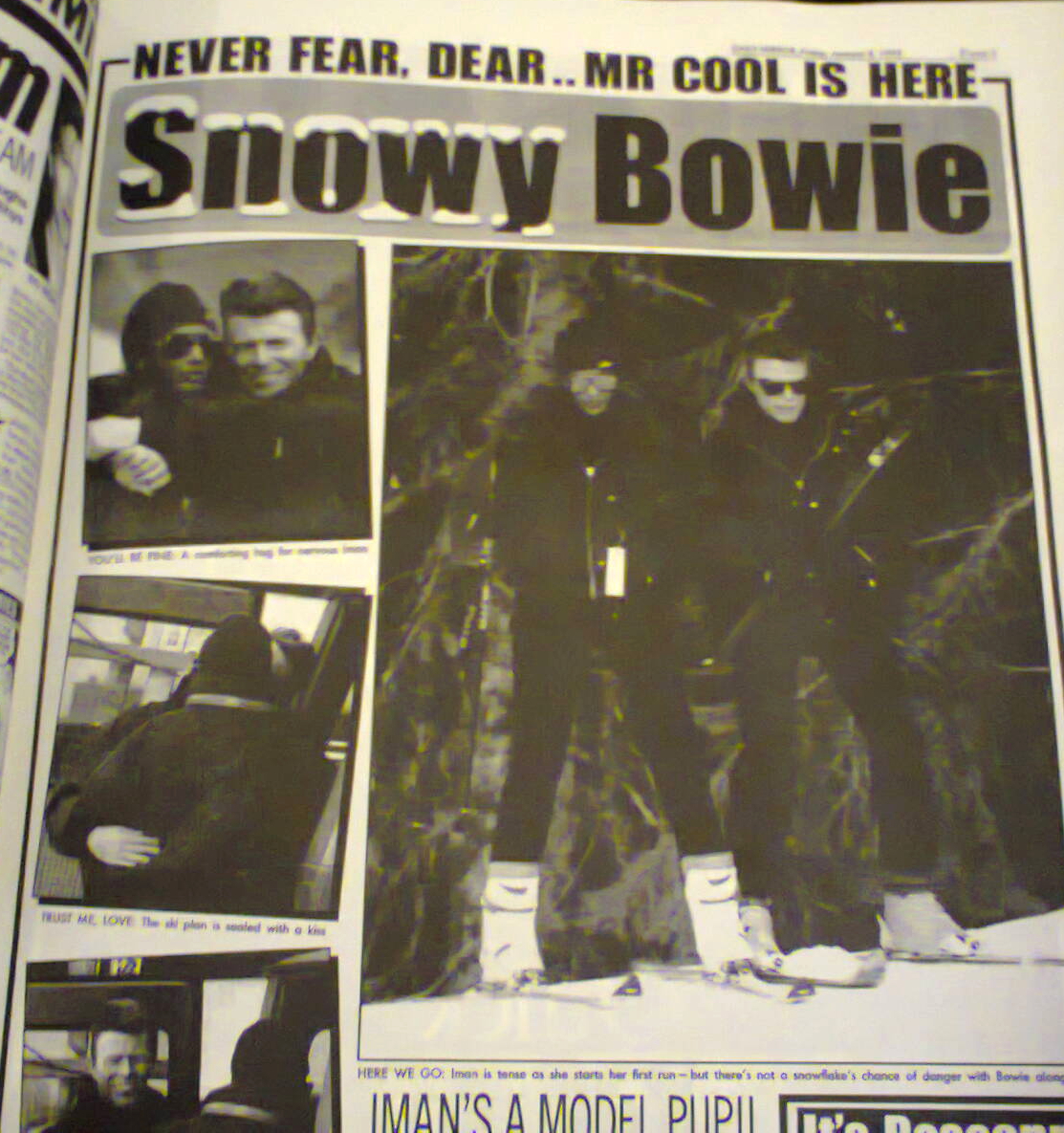
 Astrophysics Saved My Life is the second album by folk-rock group Rivers of England and it’s a rich, accessible and pleasant album that wears its unorthodox aspects very lightly. The most audible reference point is less folk (let alone ‘folk rock’) and more the jazzy John Martyn of Solid Air, although Rivers of England’s sound is never quite as unearthly as that comparison suggests, not least because singer/songwriter Rob Spalding has a David Gray-like (though not David Gray-sounding) directness in his vocal performances that is very different from John Martyn’s allusive, intuitive delivery. It’s a strong set of songs that seems set for mainstream success; they would be an eminently suitable festival band, so hopefully they should be on some main (or at least big) stages this summer.
Astrophysics Saved My Life is the second album by folk-rock group Rivers of England and it’s a rich, accessible and pleasant album that wears its unorthodox aspects very lightly. The most audible reference point is less folk (let alone ‘folk rock’) and more the jazzy John Martyn of Solid Air, although Rivers of England’s sound is never quite as unearthly as that comparison suggests, not least because singer/songwriter Rob Spalding has a David Gray-like (though not David Gray-sounding) directness in his vocal performances that is very different from John Martyn’s allusive, intuitive delivery. It’s a strong set of songs that seems set for mainstream success; they would be an eminently suitable festival band, so hopefully they should be on some main (or at least big) stages this summer.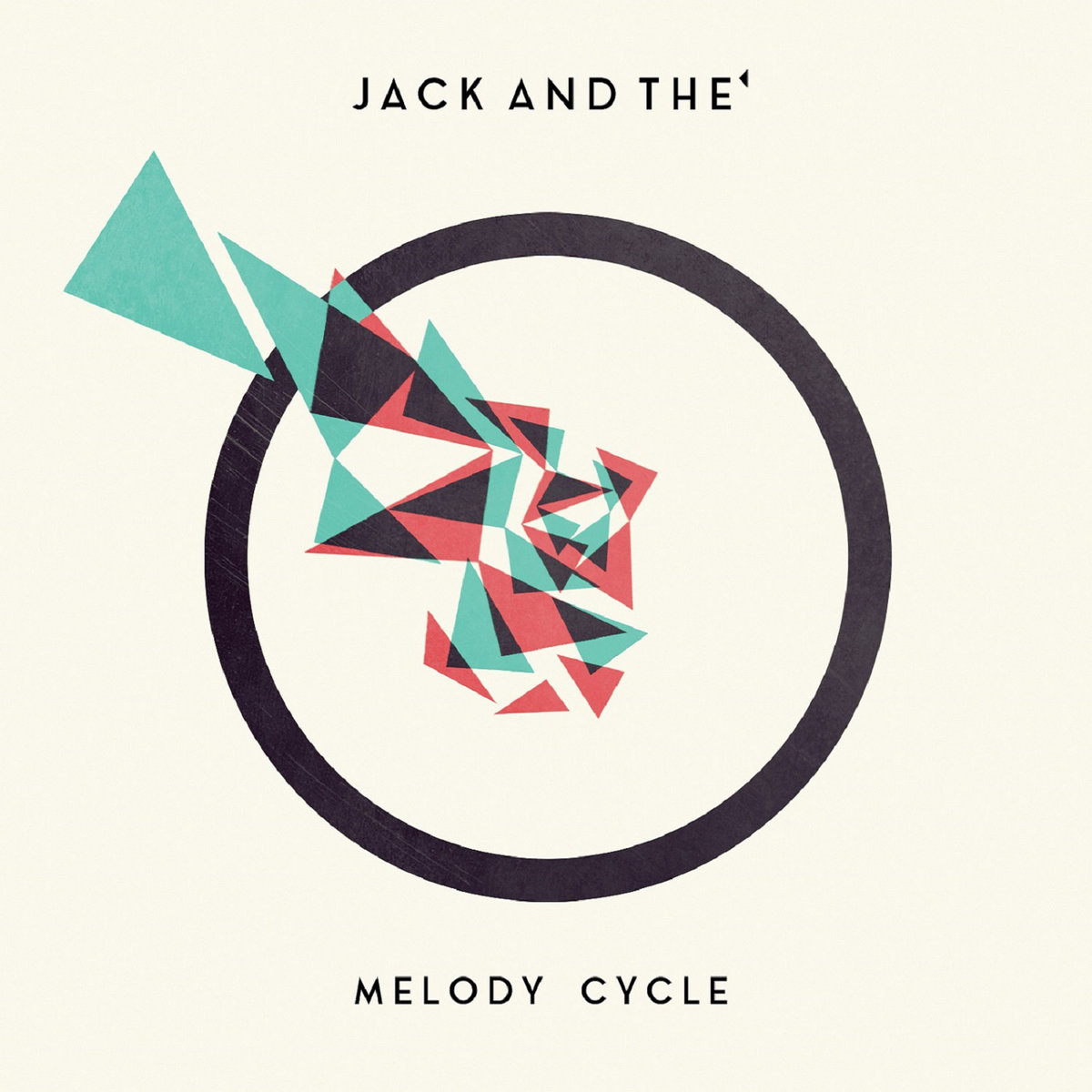 Less ‘normal’ and slightly more my cup of tea is Melody Cycle by Jack And The’, the musical project of Edinburgh-based French multi-instrumentalist Julien Lonchamp.
Less ‘normal’ and slightly more my cup of tea is Melody Cycle by Jack And The’, the musical project of Edinburgh-based French multi-instrumentalist Julien Lonchamp. In a heavier vein than the Folkwit records, my favourite metal musician
In a heavier vein than the Folkwit records, my favourite metal musician  Speaking of unashamed heavy metal, an unexpected treat to (belatedly) come my way was the latest albums by Scottish NWOBHM legends
Speaking of unashamed heavy metal, an unexpected treat to (belatedly) come my way was the latest albums by Scottish NWOBHM legends 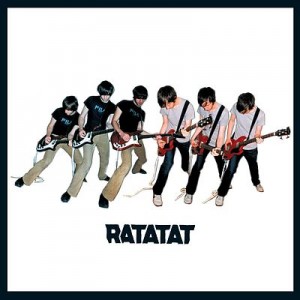 Away from current releases, birthday presents allowed me to overdose on the works of RATATAT, specifically their perfect debut album as well as LP3 and LP4. RATATAT are an interesting band to study chronologically, since their work manages to be both hard to label and surprisingly homogenous in itself. LP3 feels like the most experimental of the three (of all their albums in fact), but it’s a slightly deceptive perception, since LP4 was mostly recorded in the same sessions, so it’s mostly a matter of selection. It feels as though the duo are attempting to explore all of the possibilities within a fairly narrow range of sounds/styles and since their latest album Magnifique (2015) is perhaps their best to date, they hopefully still have plenty of exploring to do.
Away from current releases, birthday presents allowed me to overdose on the works of RATATAT, specifically their perfect debut album as well as LP3 and LP4. RATATAT are an interesting band to study chronologically, since their work manages to be both hard to label and surprisingly homogenous in itself. LP3 feels like the most experimental of the three (of all their albums in fact), but it’s a slightly deceptive perception, since LP4 was mostly recorded in the same sessions, so it’s mostly a matter of selection. It feels as though the duo are attempting to explore all of the possibilities within a fairly narrow range of sounds/styles and since their latest album Magnifique (2015) is perhaps their best to date, they hopefully still have plenty of exploring to do.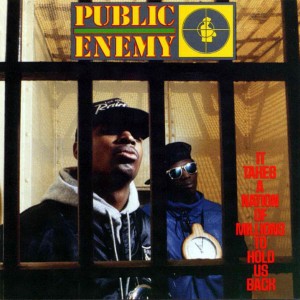 Going back in time, but never sounding more relevant than it does in 2016, Public Enemy‘s immortal It Takes A Nation Of Millions To Hold Us Back was being played probably too loud in my earphones for much of the month. Listening to Chuck D’s incredible delivery on songs like Louder Than A Bomb (to me one of the best rap performances I’ve heard) two things spring to mind; firstly that Chuck D has the perfect balance between power/authority/style and coherently getting his message across, and secondly that, from the perspective of Public Enemy in 1988, the USA in 2016 is probably both better and worse than they could have foreseen.
Going back in time, but never sounding more relevant than it does in 2016, Public Enemy‘s immortal It Takes A Nation Of Millions To Hold Us Back was being played probably too loud in my earphones for much of the month. Listening to Chuck D’s incredible delivery on songs like Louder Than A Bomb (to me one of the best rap performances I’ve heard) two things spring to mind; firstly that Chuck D has the perfect balance between power/authority/style and coherently getting his message across, and secondly that, from the perspective of Public Enemy in 1988, the USA in 2016 is probably both better and worse than they could have foreseen.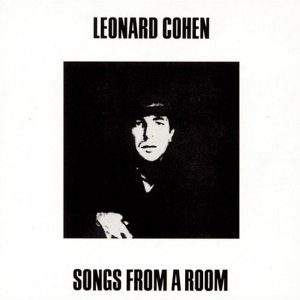 Older still, Leonard Cohen‘s Songs From A Room is an album I knew but didn’t own and it seems as good a place as any to start with his work. Strangely, I mainly know the songs from trying to learn to play the guitar with them (I can’t remember why, but the songbook for Songs From A Room and a Songs of George Formby were the only two chord books I had for years; sounds like a charity shop purchase). Maybe it’s because I spent large chunks of late adolescence listening to Joy Division, Cranes, The Smiths etc, but I don’t find Leonard Cohen at all depressing; and really, if as people often claim apologetically, ‘he isn’t really a singer, he’s a poet’, then what is Bob Dylan, or even Lou Reed? Cohen’s voice may not be flamboyant, but it’s inherently musical, and it delivers his emotionally complex lyrics with perfect clarity. The musical sparseness of the album too is a plus, stripped of late 60s ornament, it is timeless and beautiful.
Older still, Leonard Cohen‘s Songs From A Room is an album I knew but didn’t own and it seems as good a place as any to start with his work. Strangely, I mainly know the songs from trying to learn to play the guitar with them (I can’t remember why, but the songbook for Songs From A Room and a Songs of George Formby were the only two chord books I had for years; sounds like a charity shop purchase). Maybe it’s because I spent large chunks of late adolescence listening to Joy Division, Cranes, The Smiths etc, but I don’t find Leonard Cohen at all depressing; and really, if as people often claim apologetically, ‘he isn’t really a singer, he’s a poet’, then what is Bob Dylan, or even Lou Reed? Cohen’s voice may not be flamboyant, but it’s inherently musical, and it delivers his emotionally complex lyrics with perfect clarity. The musical sparseness of the album too is a plus, stripped of late 60s ornament, it is timeless and beautiful.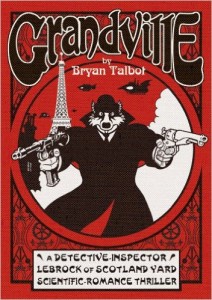 An extremely fun, quick, easy but not simple read was the first volume of Bryan Talbot‘s graphic novel series Grandville. Named in honour of the French caricaturist Grandville* the series consists of old fashioned ‘scientific romance thrillers’ that are part pointed steampunk satire, part Rupert the Bear; a very satisfying mixture as it turns out, and beautifully designed and drawn too. As it happens, Bryan Talbot had already drawn possibly my favourite ever steampunk comic art in his tenure as artist on Nemesis The Warlock in 2000AD comic. His ‘Gothic Empire’ episodes are beautifully atmospheric, some of the finest artwork from one of 2000AD’s golden ages.
An extremely fun, quick, easy but not simple read was the first volume of Bryan Talbot‘s graphic novel series Grandville. Named in honour of the French caricaturist Grandville* the series consists of old fashioned ‘scientific romance thrillers’ that are part pointed steampunk satire, part Rupert the Bear; a very satisfying mixture as it turns out, and beautifully designed and drawn too. As it happens, Bryan Talbot had already drawn possibly my favourite ever steampunk comic art in his tenure as artist on Nemesis The Warlock in 2000AD comic. His ‘Gothic Empire’ episodes are beautifully atmospheric, some of the finest artwork from one of 2000AD’s golden ages. Another book with pictures is the brilliant Vivia
Another book with pictures is the brilliant Vivia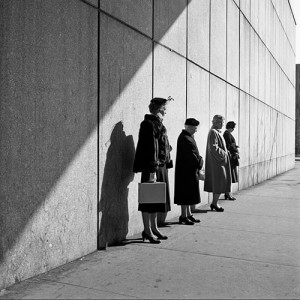 n Maier: Street Photographer edited by John Maloof and published by
n Maier: Street Photographer edited by John Maloof and published by 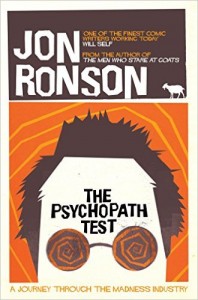
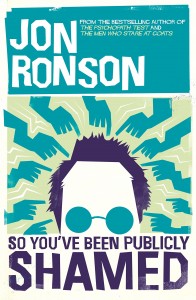 Psychopath Test. A superb and funny investigation into the nature of madness of various types, it retrospectively suffers a little from its own success, the ideas and stories having been widely disseminated since publication (Channel 4’s Psychopath Night etc) and on the whole I think I prefer his latest,
Psychopath Test. A superb and funny investigation into the nature of madness of various types, it retrospectively suffers a little from its own success, the ideas and stories having been widely disseminated since publication (Channel 4’s Psychopath Night etc) and on the whole I think I prefer his latest,